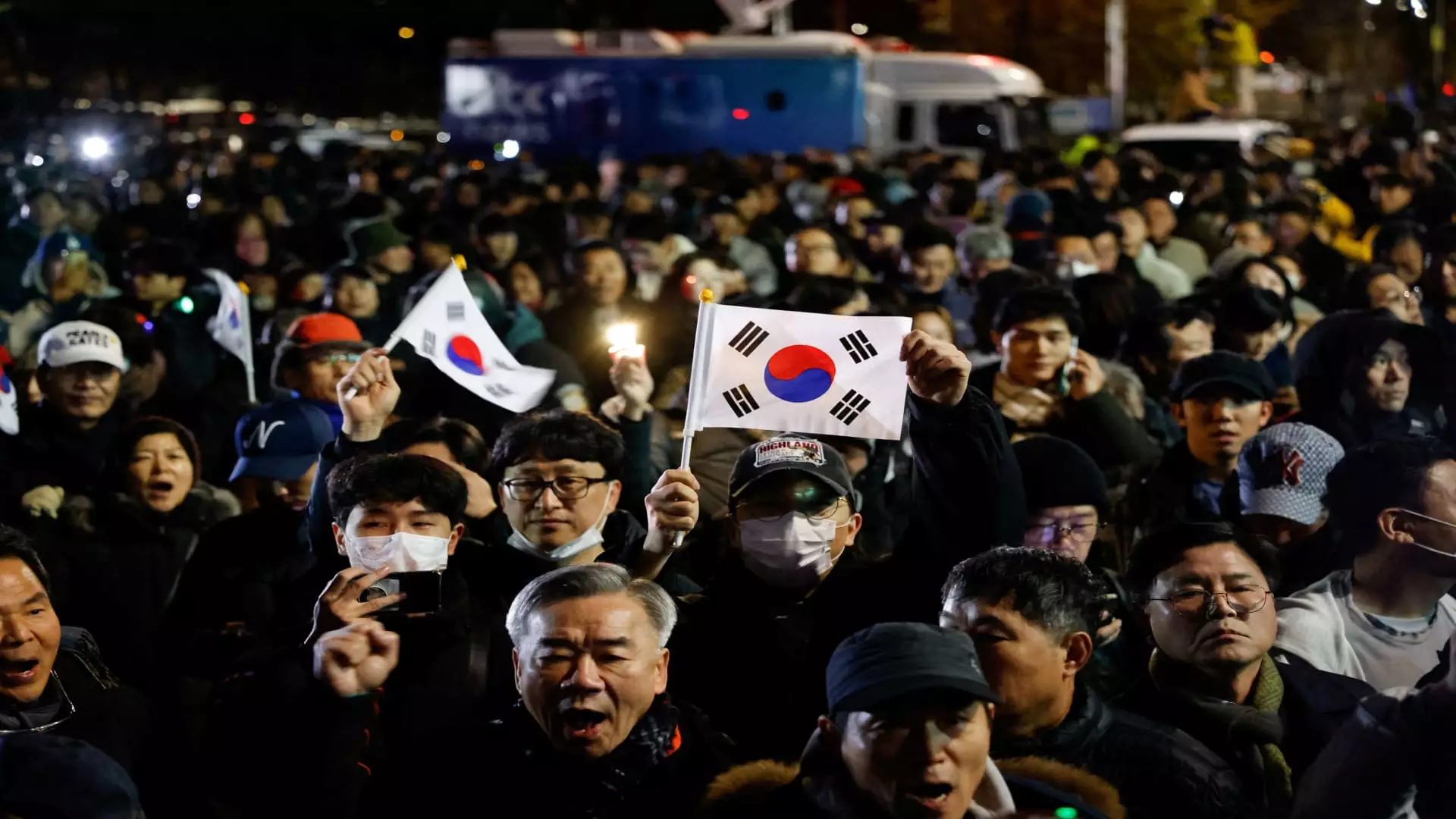The political landscape in South Korea is undergoing a significant upheaval following President Yoon Suk Yeol’s controversial attempt to impose martial law. The repercussions of this decision have not only led to a travel ban on the president himself but have also triggered widespread calls for his resignation amid escalating dissent within the ranks of his own party and the military. The origins of this crisis can be traced back to Yoon’s declaration on December 3, granting extensive emergency powers to the military to supposedly combat “anti-state forces” and political dissent. The swift reversal of this order, just six hours later, has been viewed as a political blunder that has undermined his authority and exposed deep fractures within the South Korean government.
Yoon’s miscalculated maneuvers have plunged the nation into a constitutional crisis, sparking debates around the separation of powers and whether national stability can be maintained under such turbulent conditions. The local media’s coverage of Yoon’s criminal investigation, ostensibly for treason, has only intensified the scrutiny on his presidency, and many see his leadership as increasingly tenuous.
Senior military officials have voiced their opposition to Yoon’s authority following the attempted martial law, illustrating a significant breakdown in command and control within the armed forces. This rebellion against presidential orders has prompted the acting defense minister and others to publicly declare their unwillingness to follow any such measures in the future. The lack of cohesion among military leadership raises alarms not only about Yoon’s control over defensive strategies but also poses serious questions regarding national security.
Compounding the military’s dissent, the main opposition party, the Democratic Party, has ramped up demands for Yoon’s ousting from any position of military control, further complicating the political landscape. With calls for his impeachment echoing through the halls of the National Assembly, it has become clear that South Korea’s political stability is hanging by a thread.
In the face of growing internal strife, the ruling People Power Party (PPP) has established a task force aimed at addressing both Yoon’s potential resignation and broader political stabilization after the fallout from the martial law attempt. This initiative signals an acknowledgment among Yoon’s allies that swift action is necessary to avoid political chaos. However, the decision to transfer some presidential authority to Prime Minister Han Duck-soo in the interim has faced criticism, with opponents arguing that this maneuver lacks constitutional backing.
Legal experts have expressed mixed opinions regarding the validity of this delegation of authority, particularly concerning the military’s operational oversight. This complexity has further deepened the institutional crisis by raising questions about the democratic legitimacy of a prime ministerial figure who was not elected to the presidency, starkly contrasting the role of a vice president in countries like the United States.
As the crisis unfolds, South Korea’s relationship with its key ally, the United States, may also be under strain. Secretary of State Antony Blinken’s expression of concern for the democratic processes in South Korea reflects the broader anxiety among international observers regarding stability in the region. The delicate geopolitical balancing act is further complicated by North Korea’s escalating military ties with Russia and strategic maneuvering in response to regional security threats.
The escalating tensions have raised alarms about the potential impact on South Korea’s economy—particularly in its ability to maintain its position as a leading global supplier of memory chips. As the finance ministry formulates contingency plans to stabilize markets amidst this unrest, both businesses and citizens are left to navigate an atmosphere rife with uncertainty. Economic leaders have highlighted that governmental stability is crucial for consistent economic policies, and any disruption could have long-lasting ramifications.
The current political crisis surrounding President Yoon Suk Yeol poses significant challenges for South Korea, threatening the very fabric of its democratic institutions and governance. The ramifications of his attempts at overreach are unfolding in real-time, with implications that stretch far beyond the domestic sphere into international relations and economic stability. As pressure mounts for Yoon to step down or face impeachment, the way forward remains fraught with uncertainty. Only time will tell how South Korea can resolve this tumultuous chapter in its history, rebuild political consensus, and restore public trust in its leadership.


Leave a Reply